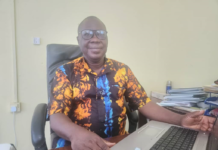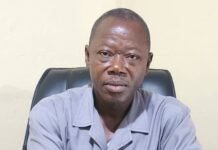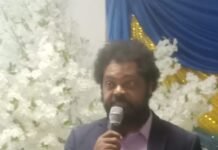By Amara Thoronka
Teaching and learning foreign language, especially when the tutor and learner are non-native speakers of the said language, is always challenging. Sometimes, it yields very little or no desired impact on the learners and render intended learning outcome unachievable. Communicative language is about learning a particular language with the intention of speaking it. In Sierra Leone, the official language is English and it is therefore the teaching dialect in schools and the mode of communication in all official activities, operations and deliberations of public and private establishments; therefore its importance needs not be overemphasised.
However, over the years, the teaching and learning of English Language in the country has been a major cause for concern especially so when a good number of high school, university students and even graduates cannot speak good English. It is indeed a serious issue for one to spend ten to fifteen years in an educational system characterised by English but ends up speaking the language with very little or zero proficiency.
The causative factor for such deficiency in English proficiency is the exclusive focus of English teachers and learners on grammatical rules rather than prioritising communicative language over appropriate grammar usage. The fundamental essence of teaching or learning any language is to enable one to communicate effectively in speaking and writing while using the said language. What happen in Sierra Leone is that English instructors focus so much on preoccupying their students’ minds in absorbing rules in grammar; and the students in turn are obsessed with cramming all the rules in grammar. This most often frightens students not to practically speak because they are afraid of not using the correct grammar; and will therefore not practice to speak.
Also, literary and debating society and other English speaking platforms are either ineffective or not functional. The learning of English has now been hugely restricted to lifting grammatical rules to pass English exams at primary, secondary and tertiary levels. Students most often do not speak English because they are no longer encouraged to do so. It is appalling to hear people, including teachers and prominent people using Krio and other native dialects to communicate in schools, colleges and offices. This is because students are not taught to and are not provided with the platform to speak English rather than cramming it. Many students can write well but cannot do the same for speaking because they lack the communicative control and confidence over the queen’s language.
The other crucial factor has been the lack of translated language teaching. This is about translating Krio words or expressions into English. There are hundreds of graduates who do not know how to say in English many frequently used Krio words/expressions thereby limiting their vocabulary and unable them to speak effectively. Many English tutors in the country do not use translation as an approach to prevent students from using Krio expressions while speaking English. This is the reason why there are so much Krio in the English of people.
English tutors are therefore advised to prioritise speaking over rules. When students are provided with the platform to speak with confidence or boldness, the grammatical rules will be learnt along the course of learning. The focus should be on ensuring that students speak effectively. Learning is not only meant to pass internal and external exams, but also to practically solve problems in society and one of such societal problem is the inability of many students, graduates and workers to effectively speak English. English teachers should ensure that their students put into practice what they are taught by efficiently and consistently using group reading, presentation, debate and competition on current affairs in all classes from elementary to university. Also, tutors of English should continuously expose students to the English versions of commonly used Krio terms as to enable them speak with zero Krio influence.

























Wow! I think the problem has been evolving around, but nobody actually cares in making sure that there are solutions to them by improving the speaking of we the speakers instead of cramming the rules of the grammer aspect of the said language to pass examinations. It is seriously crazier to hear a graduate calling for instance “HAVE” to “AVE” and some other major pronounciation problem in the country. But what i will suggest is that there has to be an adoption of frequent english speaking in the country more especially in learning institution and working offices with a MOST. Thank you so much.